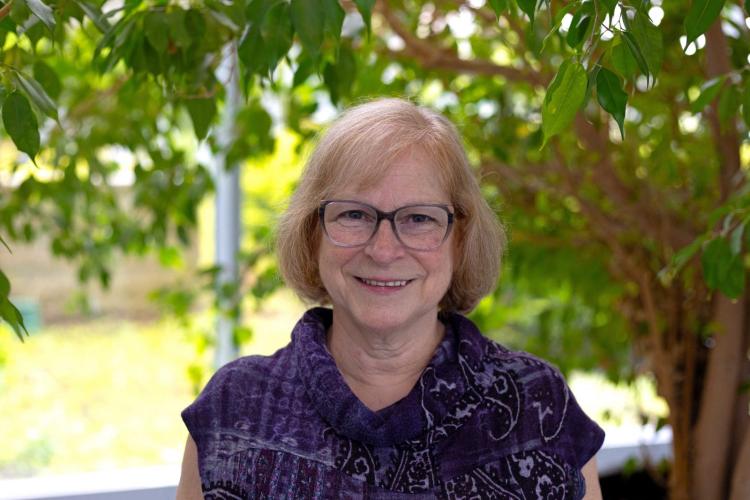The International Union for Conservation of Nature (IUCN) has elected Brock University's Liette Vasseur to head up one of its expert scientific commissions tasked with guiding global conservation policy.

Professor of Biological Sciences Liette Vasseur was appointed as Chair of a prestigious international scientific commission to advance global sustainability priorities earlier this month.
The Professor of Biological Sciences was appointed as Chair of the Commission on Ecosystem Management (CEM) during the IUCN's annual meeting earlier this month.
"The CEM is a collaborative effort of experts around the world bringing together sound science to inform policy," says Vasseur, Brock's UNESCO Chair in Community Sustainability: From Local to Global. "International collaboration and representation will be essential in moving forward on addressing pressing and interconnected global priorities."
Established in 1948 and composed of more than 17,000 experts contributing to projects in 160 countries, the IUCN is one of the largest and most well-known conservation organizations in the world. It also significantly contributed to the Convention on Biological Diversity and the implementation of its historic Kunming-Montreal Global Biodiversity Framework.
The CEM, with more than 2,000 members, supports the IUCN's objectives by contributing knowledge on the environmental, economic, social and cultural factors affecting the management of natural resources and biological diversity.
Vasseur's term as CEM Chair will last for four years.
In the role, she plans to continue her work on IUCN initiatives such as the Red List of Ecosystems, Nature-based Solutions global standard and restoration efforts aligned with the United Nations Decade on Ecosystem Restoration. She will also contribute to activities undertaken by the 31 technical groups that operate within the CEM.
"At the IUCN, we are looking at what we call the the multi-crisis of climate change, biodiversity loss and pollution, because all three are all related and interconnected," she says. "Humans are also connected to everything, and we need to look to how we bring back biodiversity and conservation within managed systems, such as urban centers and agroecosystems, because understanding this relationship is critical to effective conservation."
In addition to her role as Chair, Vasseur recently contributed to the creation of a new Introduction to Conservation and Climate Change course, available for free through the IUCN Academy.
Vasseur and her former graduate student Salima Medouar also edited a forthcoming IUCN book, Urban-rural linkage: an ecosystem governance perspective. It uses a variety of case studies to explore the role of ecosystem governance in strengthening connections between urban and rural ecosystems. As shown in the work her lab conducted with sustainable municipal development in the Town of Lincoln, for example, Vasseur says addressing challenges related to the connectivity of these ecosystems is critical for managing resources, adapting to climate change and building more resilient communities overall.
"When we look at the IUCN's new program for the next four years, the questions of urban biodiversity and agroecosystems are becoming increasingly important," she said. "Adopting principles to both support ecosystem restoration and improve biological diversity will be critical as we work to achieve our sustainability goals in the future."
Vasseur regularly contributes to international sustainability initiatives and the strengthening of international research collaborations and partnerships.
As a continuation of her work on the International Decade of Sciences for Sustainable Development, for example, Vasseur supported this month's launch of Science, Engineering and Sustainability for All (Sciensa), which aims to advance scientific research and strengthen international collaboration.
She was also a member of the Canadian delegation at the UNESCO World Congress of Biosphere Reserves in September, which gathered to discuss the future of UNESCO's more than 750 biosphere reserves through the adoption of the new Hangzhou Strategic Plan.












